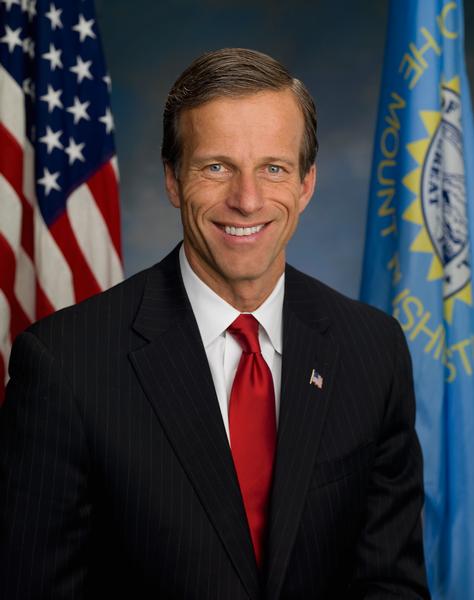Thune, Warnock Introduce the Promoting Precision Agriculture Act
Senators’ bipartisan legislation would increase the adoption of precision agriculture technologies for farmers and ranchers
 WASHINGTON — U.S. Sens. John Thune (R-S.D.) and Raphael Warnock (D-Ga.), members of the Senate Committee on Agriculture, Nutrition, and Forestry and the Senate Committee on Commerce, Science, and Transportation, today introduced the Promoting Precision Agriculture Act, bipartisan legislation to help facilitate further adoption of precision agriculture technology. The bill would establish a partnership between the government and the private sector to develop voluntary interconnectivity standards and prioritize the cybersecurity needs for precision agriculture technologies.
WASHINGTON — U.S. Sens. John Thune (R-S.D.) and Raphael Warnock (D-Ga.), members of the Senate Committee on Agriculture, Nutrition, and Forestry and the Senate Committee on Commerce, Science, and Transportation, today introduced the Promoting Precision Agriculture Act, bipartisan legislation to help facilitate further adoption of precision agriculture technology. The bill would establish a partnership between the government and the private sector to develop voluntary interconnectivity standards and prioritize the cybersecurity needs for precision agriculture technologies.
“Agriculture is the lifeblood of South Dakota,” said Thune. “Making agriculture more efficient and more productive is not only good for our nation’s food supply, it’s good for South Dakota farmers and ranchers and their families. I’m proud to introduce this bill that would help enhance and protect precision agriculture equipment as more producers use next-generation technologies to improve their operations.”
“Technology is an integral part of farming in the 21st century,” said Warnock. “Georgia producers use robotics, sensors, monitors, and even drones to increase crop yield and use their resources effectively. It only makes sense that these technologies should work seamlessly together. This bill is good for farmers and the families they serve. I’m glad to work with Senator Thune, my colleague on the Senate Agriculture Committee, on this bipartisan legislation. We’re going to fight to get this done.”
The Promoting Precision Agriculture Act would:
- Direct U.S. Department of Agriculture (USDA), in consultation with the National Institute of Standards and Technology (NIST), to support the development of voluntary, consensus-based, industry-led interconnectivity standards, guidelines, and best practices for precision agriculture to encourage the adoption of precision agriculture technology.
- Support the evolving demands of precision agriculture by requiring USDA, the Federal Communications Commission, and NIST to consider the impacts next-generation technologies will have on precision agriculture.
- Prioritize the cybersecurity needs of precision agriculture. As advanced precision agriculture technologies become more readily available, the agriculture industry has increasingly become vulnerable to cybersecurity threats.
Thune, who has helped write four farm bills throughout his time in Congress, will continue introducing farm bill proposals ahead of the current bill’s expiration in September 2023. Thune spoke about the Promoting Precision Agriculture Act today on the Senate floor.
###

We’re all sitting on the edge of our seats because of the potential climate change aspects of this Act.
As with the conflict in Ukraine, we’re in it for as long as it takes.